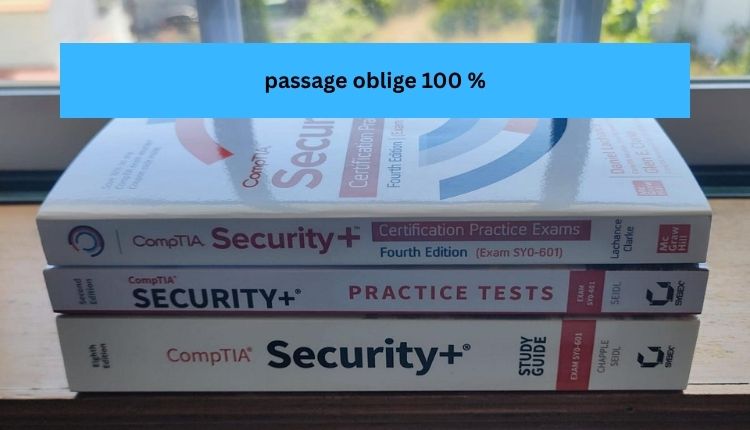This period commonly refers to the compulsory requirement for college students or candidates to score a hundred percent in a specific segment, often a passage-based question or comprehension phase, as a way to bypass or qualify. While this can sound stringent, many academic boards or institutions trying out techniques put into effect any such coverage to make sure candidates possess a radical understanding of crucial reading, comprehension, or reasoning abilities. This article explores the consequences, challenges, and motives behind the implementation of the “passage oblige 100 %” criterion in instructional and aggressive examinations.
Origin and Meaning of Passage Oblige 100 %
The phrase “passage oblige 100 %” isn’t a common term in all English-speaking international locations; however, in certain educational contexts, in particular those motivated by French or multilingual systems, it carries weight.
The word “oblige” is interpreted from French as “required” or “mandatory”, and consequently, the term implies that candidates are required to acquire a super rating in a specific passage section to retain or be triumphant. This requirement regularly applies to comprehension-based sections in checks, which test studying capability, interpretation competencies, grammar skills, and analytical thinking. The 100% requirement elevates the issue level and guarantees that the most effectively organised individuals circulate ahead.
Application in Educational Systems
In many exams, passage oblige 100 % questions shape an essential issue of the assessment process. These questions take a look at a scholar’s capacity to examine, interpret, and extract meaning from a text. In a few areas or colleges, the government has set regulations that make it mandatory to attain a great result in such sections.
The purpose is to ensure that each of the students has mastered the fundamental ability of studying comprehension, which is essential for fulfilment in all subjects. Whether the examination is in science, humanities, or language arts, the ability to understand passages and apply that knowledge is essential.
Examinations That Require Perfect Passage Scores
Some professional exams, civil service assessments, or admission front tests in distinct international locations mandate a “passage oblige 100 %” rule for certain sections. These examinations often contain vital reading or case-based sections wherein misinterpretation could have serious outcomes.
For example, in legal front checks or trainer qualification tests, comprehension capabilities are important. Therefore, requiring a super score in passage sections ensures applicants show full proficiency. This rule is often implemented in competitive checks in which a high spread is maintained, and the best, pinnacle-appearing applicants are selected.
Why Comprehension Is So Heavily Weighted
Reading comprehension is an essential skill throughout all academic disciplines. Students who can’t interpret text well may additionally face difficulties in subjects like science, where knowledge of instructions or questions is crucial, or records, in which analysing written sources is key.
The passage oblige 100 % requirement is a way to spotlight the significance of this talent. Educational institutions accept as true that this threshold pushes college students to improve their studying habits, vocabulary, and capability to recognise nuanced thoughts. In professional fields, misinterpreting a document could result in important mistakes. Hence, making sure that candidates can flawlessly interpret written content material is considered a preventative measure.
Psychological Impact on Students
Implementing a hundred percent requirement for a passage oblige 100 % section could have sizeable psychological outcomes on college students. On one hand, it encourages diligence and precision in practice. On the other hand, it could grow tension, in particular amongst common newbies.
Many students sense that beaten understanding that even a minor mistake may disqualify them from passing. This method has drawn grievance from a few educators who argue that learning ought not to be pushed by fear but by curiosity and understanding. However, supporters accept as true that pressure and high requirements can lead to better overall performance when accompanied by the aid of the proper guide mechanisms, such as tutoring, exercise periods, and early intervention.
Challenges in Achieving a hundred Percent Accuracy
Achieving perfection in any part of an examination is tough. Human blunders, strain, or misreading a question can cause even the brightest students to lose marks. In the context of a passage, questions might be primarily based on diffuse inferences or encompass intricate distractors.
Grammar, tone interpretation, or vocabulary nuances can, in addition, complicate responses. Additionally, language boundaries could make it even tougher for college students in multilingual countries or those studying a passage oblige 100 %. To mitigate those difficulties, colleges and educators often implement schooling packages, mock tests, and in-depth review instructions.
Technology and Passage-Based Assessments: Passage Oblige 100 %
With the rise of digital studying and online tests, passage-based questions have turned out to be more dynamic. Adaptive checking-out systems now compare a pupil’s potential to study and comprehend text in real time.
Some use AI to investigate reaction patterns and decide if a pupil simply understands the cloth. In such systems, the concept of “passage oblige 100 %” may be programmed into the platform’s set of rules, robotically disqualifying college students who do not meet the entire requirement. This stage of precision brings both blessings and worries, particularly in ensuring equity and equal access to educational resources.
Educational Philosophy Behind Stringent Requirements
The philosophy behind placing high requirements like “passage oblige 100 %” often stems from a preference to cultivate excellence and mastery. Educational forums that impose such regulations argue that partial know-how isn’t always enough in vital professions. Just as a pilot can not manage to pay for a ninety percent understanding of aviation or a health practitioner has to recognise their processes perfectly, students in practice should be trained for complete comprehension.
These standards are rooted in the perception that schooling ought to prepare people not only to pass assessments but also to perform successfully in real-life eventualities in which partial know-how isn’t suitable.
Criticism and Alternatives to the a hundred Percent Rule
While the passage oblige 100 % requirement, it has its defenders; many educators and mothers and fathers oppose the concept, calling it unrealistic and counterproductive. Critics argue that the rule of thumb ignores character-studying differences and penalises minor errors too harshly. Instead, they recommend a holistic technique that considers overall performance.
Alternatives, inclusive of weighted grading, partial credit score systems, or cumulative scoring models, have been proposed. These techniques provide a fairer evaluation of a scholar’s capabilities, spotting strengths in different regions even if there are minor blunders in comprehension.
Global Perspectives on Comprehension Standards
Different countries adopt exclusive regulations regarding studying comprehension in standardised checking out. While some, like France or parts of Africa, may additionally put into effect strict policies due to their colonial education historical past, others, like the United States and the United Kingdom, follow more flexible models.
In a few Asian countries, in which instructional opposition is passage oblige 100 %, rankings in certain sections are unofficially essential to live aggressively, even though no longer mandated. This international variation shows that even as the idea of passage perfection is debated, its underlying significance is universally mentioned.
Strategies for Students to Meet the Requirement: Passage Oblige 100 %
For students aiming to satisfy the “passage oblige 100 %”, consistent exercise is key. Reading a whole lot of texts—literature, information articles, instructional essays—and summarising them can improve comprehension.
Solving previous years’ question papers and undergoing timed analysis periods also assist. Joining reading clubs, the usage of vocabulary apps, and watching English documentaries can enhance both expertise and retention. Professional training centres regularly offer targeted training for such sections, in particular for checks that are recognised for difficult comprehension criteria.
More Words
The requirement of “passage obliges one hundred percent” is a reflection of the excessive stakes worried about in modern training and competitive testing. While the method is stringent and frequently debatable, it underscores the essential value of reading comprehension in instructional and professional fulfilment.
Understanding complex passages, deciphering them effectively, and answering with precision are talents that go beyond assessments—they’re existence equipment. Whether supported or criticised, the rule of thumb pushes each college to prioritise mastery over mediocrity, placing a fashionable that, though difficult, can enhance normal academic effects whilst implemented with care and fairness.






